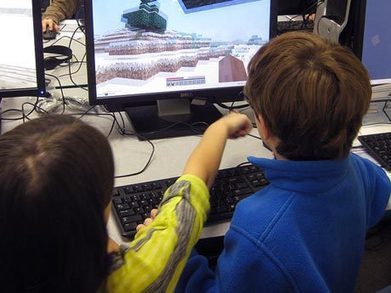The breakthrough happened after the student took the Bartle's Gamer Profile Quiz and we found out that he was a "killer." Off-the-charts killer, but achievement meant nothing to this student. Just li
Research and publish the best content.
Get Started for FREE
Sign up with Facebook Sign up with X
I don't have a Facebook or a X account
Already have an account: Login
Tech tools that assist all students to be independent learners & teachers to become better teachers
Curated by
Beth Dichter
 Your new post is loading... Your new post is loading...
 Your new post is loading... Your new post is loading...
|
|











Gamification...do you ask yourself if this will work in your classroom? In this post Vicki Davis shares her experience of bringing games into the classroom. You will learn how games may be the tool for some students to break through barriers, and also that the language used by games is not always up to school standards.
She shares five elements of gaming that should be considered as gaming and education come together.
1. Game Mechanics (think game theory)
2. Bartle Test of Game Psychology (more information on this in the post)
3. Gamification is a Process - In this section she shares the experience of another teacher whom has gamified his classroom, including an embedded video from a Google Hangout he hosted. Take the time to watch the video and learn from his experience with his 6th grade class.
4. Serious Games can be Used Anywhere - from elementary through college level (and some businesses are using games to help train future employees).
5. Serious Games can Tackle Serious Issues, and serious issues may help us promote rigor in our classrooms.
6. We Can't Trust App Stores to Curate our Games
Click through to the post for more information. After reading the post do you think that gaming has the potential to be a "powerful 'killer' tool in a 21st century teacher's toolkit?